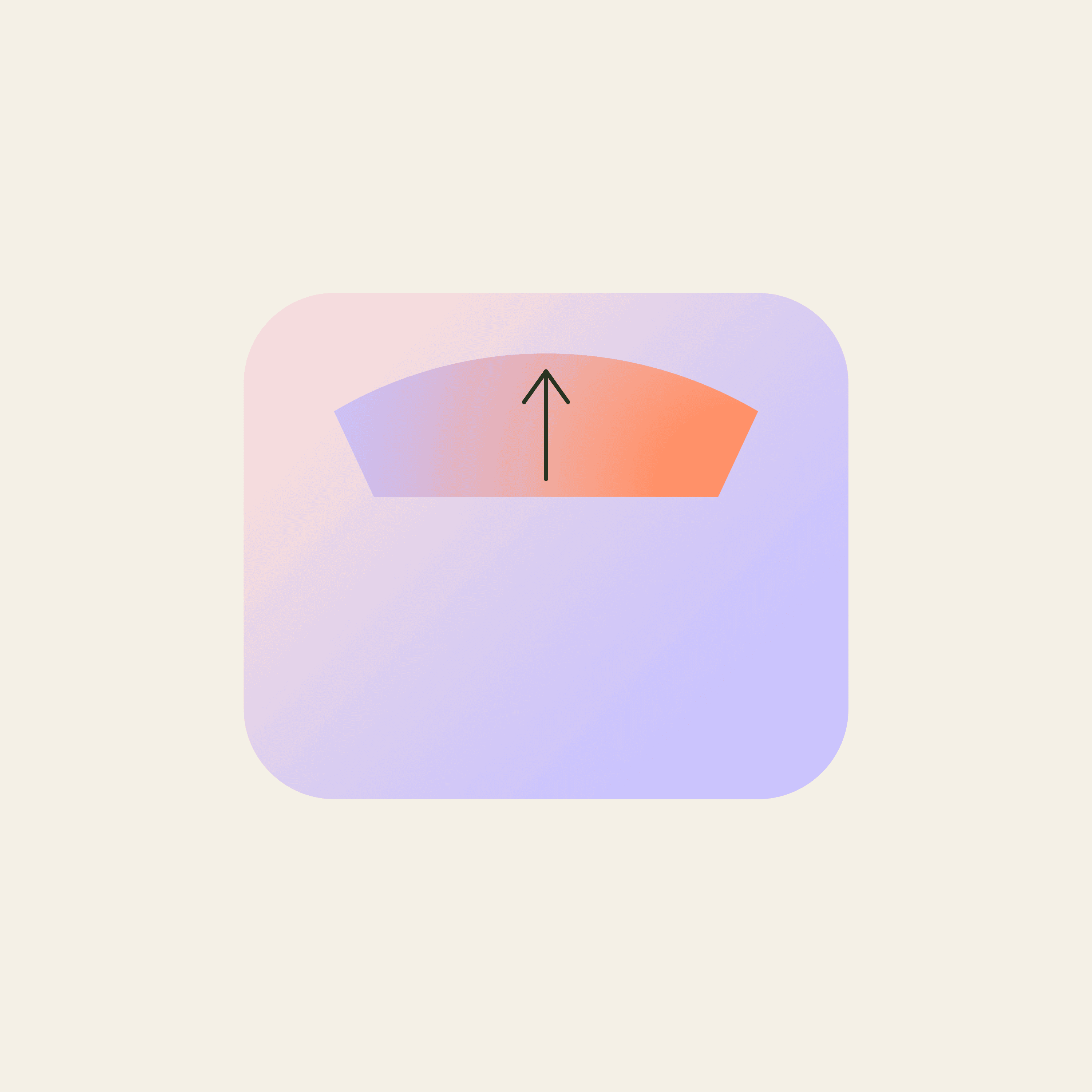Anxiety during menopause is real and more common than many realise
Anxiety is a well-recognised psychological symptom associated with the perimenopausal and postmenopausal stages. Despite its prevalence, menopause-related anxiety is frequently underdiagnosed or misattributed to lifestyle stress. It is now well understood that the hormonal fluctuations characteristic of menopause can significantly influence mental health, particularly anxiety symptoms.
According to the British Menopause Society, 30-50% of women in the menopause transition report emotional and psychological changes, including anxiety, low mood, and irritability, which may persist for several years if left untreated. (1).
What is menopause anxiety?
Menopause anxiety is more than everyday worry. It can show up as a persistent sense of unease or sudden surges of fear that seem to come from nowhere. For some, it’s a constant low-level tension. For others, it’s full-blown panic attacks that strike in the supermarket, during a work meeting, or when you’re trying to fall asleep.
Menopause anxiety symptoms
Symptoms of menopause anxiety can affect your thoughts and feelings as well as your physical well-being. Some symptoms overlap with other common symtoms of menopause so its improtant to discuss this with your clinician. Symptoms may include:
- Irrational fears
- Excessive worry
- Obsessive thoughts
- Panic attacks or anxiety attacks
- Feeling detached, irritable, or emotionally raw
- Low mood
- A sense of dread
- An increased need for reassurance
- A racing heart or pounding chest
- A churning sensation in your stomach
- Rapid breathing
- Nausea
- Sweating or hot flushes
- Trouble sleeping
- Teeth grinding, especially at night
- Changes to your libido
- Restlessness or agitation
- Tingling, especially in hands, feet, or face (2)
Can menopause cause anxiety?
Hormones play a significant role in why menopause can trigger anxiety.
As oestrogen and progesterone fluctuate, particularly during perimenopause, they affect your brain’s neurotransmitters like serotonin and GABA, which regulate mood, calm, and focus (3,4). These hormonal shifts can make you feel unsettled, even if there’s no obvious cause.
Sleep disruption, changes in identity or relationships, and physical symptoms, like hot flushes or palpitations, can also contribute to anxiety during menopause. Often, it’s a combination of hormonal changes and life context.
How common is anxiety during menopause?
Very common. In a study of 2000 women aged between 46-60, 50% reported anxiety during menopause (5). Further, nearly a third of women have taken time off work due to menopause symptoms, with 39% reporting anxiety and depression as the reason (6).
Too often, these experiences are dismissed as general life stress. However, anxiety during menopause is valid and treatable. Whether it’s a background hum of worry or overwhelming panic, it deserves care and proper support.
Treatments for anxiety in menopause
You don’t have to live feeling like you can never fully relax. There are proven, effective ways to reduce anxiety and restore calm, and the right treatment plan starts with truly listening to your experience.
Hormone replacement therapy
For many, hormone replacement therapy (HRT) makes a significant difference. By stabilising oestrogen and progesterone levels, it can help balance the brain chemistry that supports calm and emotional regulation (7).
Cognitive behavioural therapy
CBT is a powerful tool, especially when your anxiety feels overwhelming or difficult to manage. It helps you understand your thought patterns, identify triggers, and build strategies to manage symptoms (8).
Selective serotonin reuptake inhibitors
If HRT isn’t suitable, or if you prefer not to use it, selective serotonin reuptake inhibitors (SSRIs) and other non-hormonal medications may be an option. These can help regulate mood by increasing the availability of serotonin in the brain (9).
Lifestyle support
How we care for our mind and body shapes how we feel. That's why a personalised approach to sleep, movement, nutrition, and emotional support can make a real difference to menopause anxiety. Finding what works and building manageable habits can help bring your sense of steadiness back.
- Exercise: Regular physical activity improves neuroplasticity, reduces cortisol, and supports mood stability.
- Sleep optimisation: Targeting sleep hygiene and addressing co-existing insomnia can improve anxiety symptoms.
- Mindfulness and relaxation-based interventions: Mind–body techniques (e.g. yoga, breathwork, mindfulness-based stress reduction) may reduce physiological arousal and improve resilience.
Common Questions Answered
How long does menopause anxiety last?
It varies. For some, anxiety is temporary and linked to hormone dips. For others, it can last through perimenopause and into early postmenopause. With the right support, you don’t have to wait it out; you can feel better now.
Can menopause cause anxiety and heart palpitations?
Yes. Oestrogen drops can affect the cardiovascular system and nervous system, making you more prone to anxiety and palpitations. These can feel scary; however, with proper assessment and support, they’re manageable.
What’s the difference between general anxiety and menopause anxiety disorder?
Menopause anxiety is often hormonal in origin and may fluctuate with cycles or life phases. If anxiety becomes constant, intrusive, or debilitating, it may be classified as an anxiety disorder, and it’s nothing to be ashamed of. Both can be treated.
Are there any natural remedies for menopause anxiety?
There is a range of natural remedies for menopause anxiety that may offer relief, including:
- Magnesium and B-vitamin supplements
- Herbal options like ashwagandha or valerian
- Acupuncture
- Relaxation techniques like breathwork, journaling and grounding
At Voy, we listen first, with both empathy and clinical expertise. No two experiences are the same, so your care plan shouldn't be, either. We combine hormone data, symptom tracking, and your lived experience to create personalised treatment that truly fits.
Huang, Suna, et al. "Anxiety disorder in menopausal women and the intervention efficacy of mindfulness-based stress reduction." American Journal of Translational Research
Anxiety signs and symptoms - panic attacks (February 2021) https://www.mind.org.uk/information-support/types-of-mental-health-problems/anxiety-and-panic-attacks/symptoms/
Deshpande, Neelima, and TS Sathyanarayana Rao. "Psychological Changes at Menopause: Anxiety, Mood Swings, and Sexual Health in the Biopsychosocial Context." Journal of Psychosexual Health
Alblooshi, Salama, Mark Taylor, and Neeraj Gill. "Does menopause elevate the risk for developing depression and anxiety? Results from a systematic review." Australasian Psychiatry
A fact-based focus on Perimenopause and Menopause issues faced by women Written evidence from Health and Her [MEW0054] https://committees.parliament.uk/writtenevidence/39340/pdf/
Fawcett Society. Landmark Study: Menopausal Women Let Down by Employers and Healthcare Providers
About hormone replacement therapy (HRT) - NHS (February 2023) (Accessed 15th August 2025) https://www.nhs.uk/medicines/hormone-replacement-therapy-hrt/about-hormone-replacement-therapy-hrt/
BMS. Cognitive Behaviour Therapy (CBT) for Menopausal Symptoms (October 2019) https://thebms.org.uk/wp-content/uploads/2022/12/01-BMS-TfC-CBT-NOV2022-A.pdf
Other medicines for menopause symptoms - NHS (February 2023) https://www.nhs.uk/medicines/hormone-replacement-therapy-hrt/alternatives-to-hormone-replacement-therapy-hrt/other-medicines-for-menopause-symptoms/



